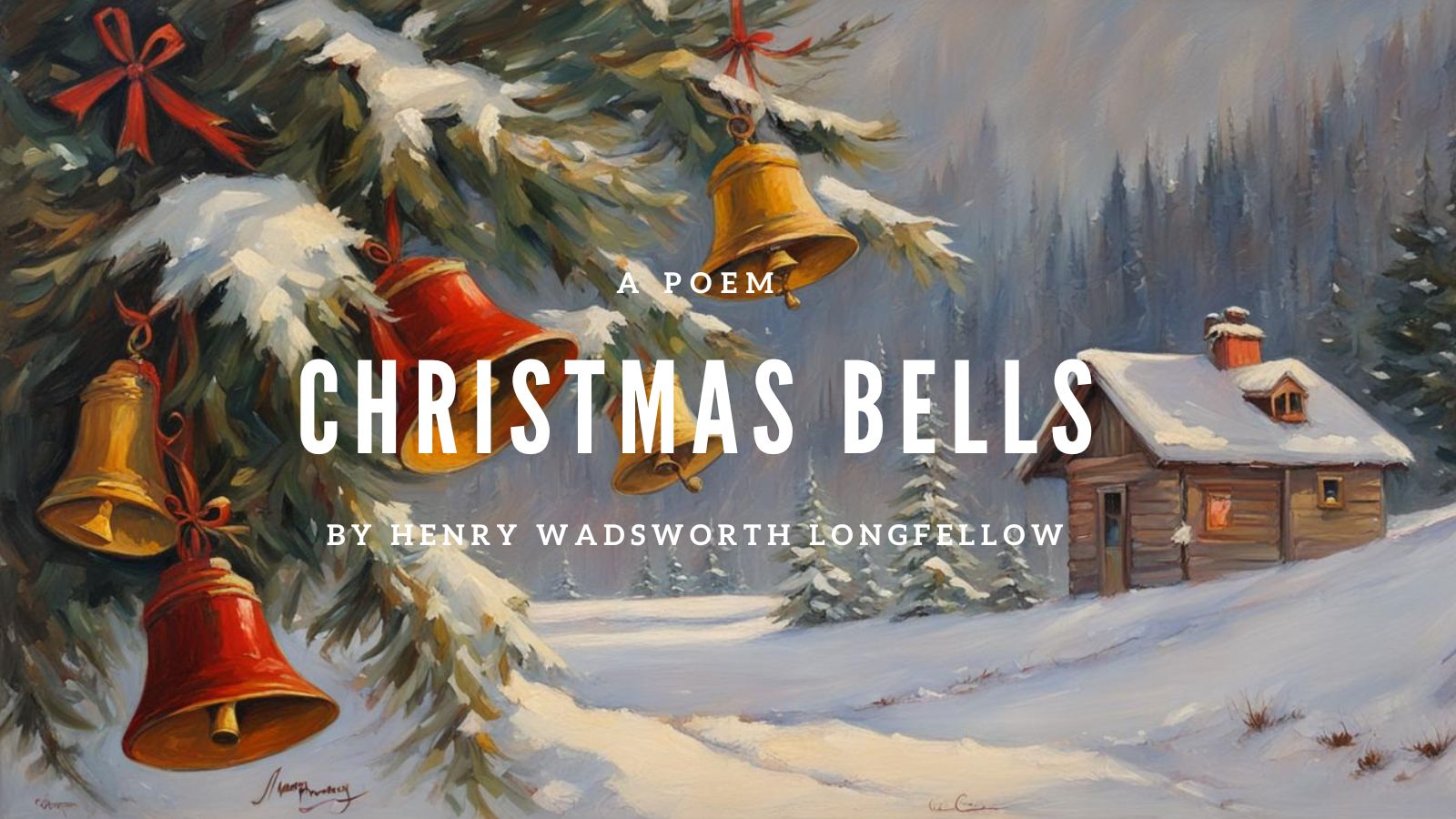CHRISTMAS BELLS by Henry Wadsworth Longfellow
CHRISTMAS BELLS
by Henry Wadsworth Longfellow
I heard the bells on Christmas Day
Their old, familiar carols play,
And wild and sweet
The words repeat
Of peace on earth, good-will to men!
And thought how, as the day had come,
The belfries of all Christendom
Had rolled along
The unbroken song
Of peace on earth, good-will to men!
Till, ringing, singing on its way,
The world revolved from night to day,
A voice, a chime,
A chant sublime
Of peace on earth, good-will to men!
Then from each black, accursed mouth
The cannon thundered in the South,
And with the sound
The carols drowned
Of peace on earth, good-will to men!
It was as if an earthquake rent
The hearth-stones of a continent,
And made forlorn
The households born
Of peace on earth, good-will to men!
And in despair I bowed my head;
“There is no peace on earth,” I said:
“For hate is strong,
And mocks the song
Of peace on earth, good-will to men!”
Then pealed the bells more loud and deep:
“God is not dead; nor doth he sleep!
The Wrong shall fail,
The Right prevail,
With peace on earth, good-will to men!”
###
Henry Wadsworth Longfellow (1807-1882) was the most popular American poet of his day. He achieved widespread fame with works like “Paul Revere’s Ride,” The Song of Hiawatha, and “The Wreck of the Hesperus” that idealized American history and landscapes. Though born in Portland, Maine, Longfellow spent much of his youth traveling Europe. These early travels inspired a lifelong interest in European cultures and traditions which he incorporated into his poetry. After returning to America, Longfellow accepted a professorship at Harvard College, becoming one of the first American academics focused on developing a genuinely American national literature. Known for his flowing rhyme schemes, use of folklore themes, and melancholic tone, Longfellow created accessible works that resonated powerfully with the public during his lifetime and after his death from peritonitis at age 75. More than just a famous name, Longfellow left an enduring mark on American letters through poems that gave a new nation myths and stories of its own.
